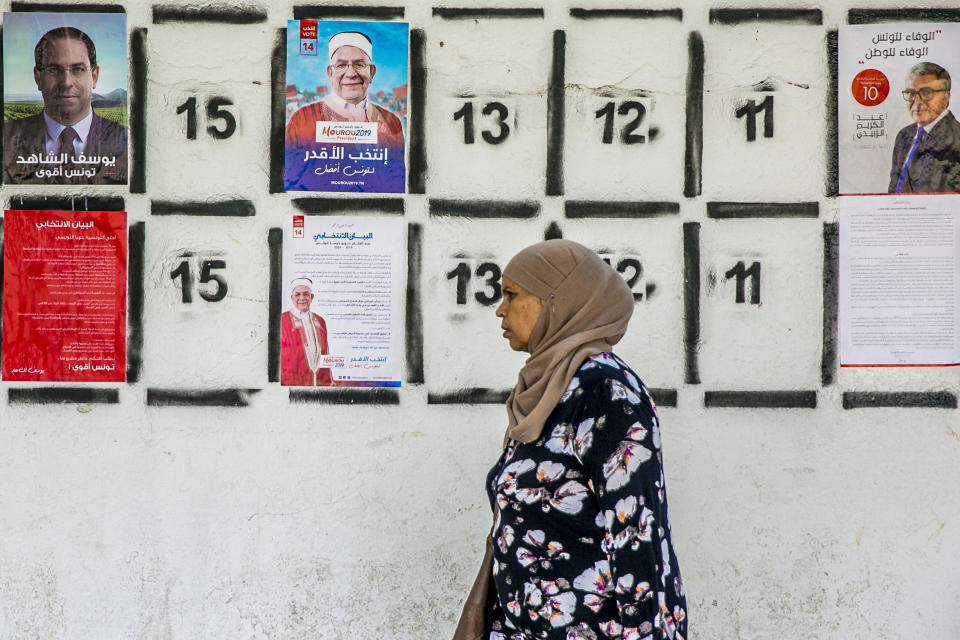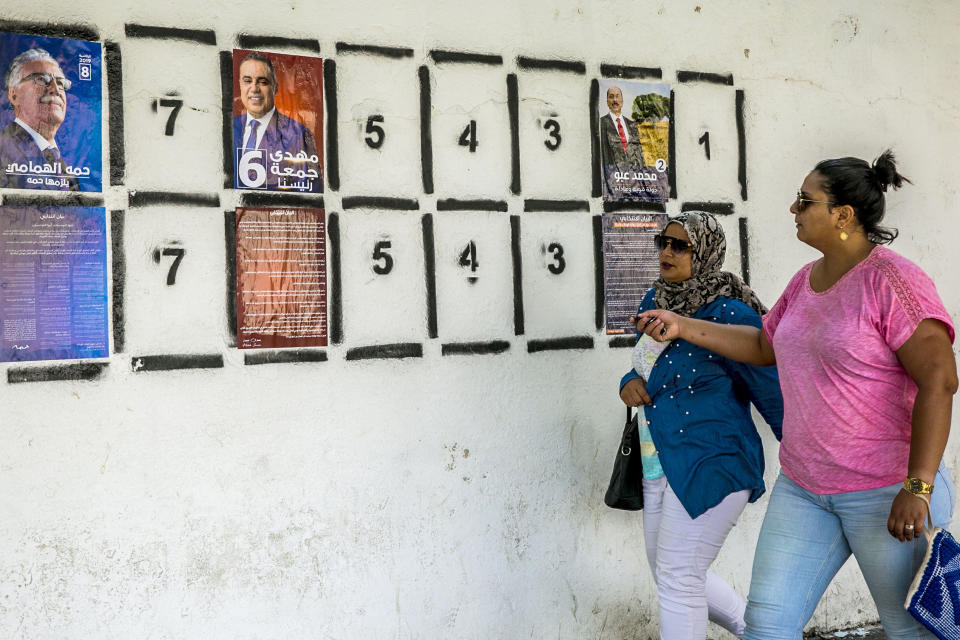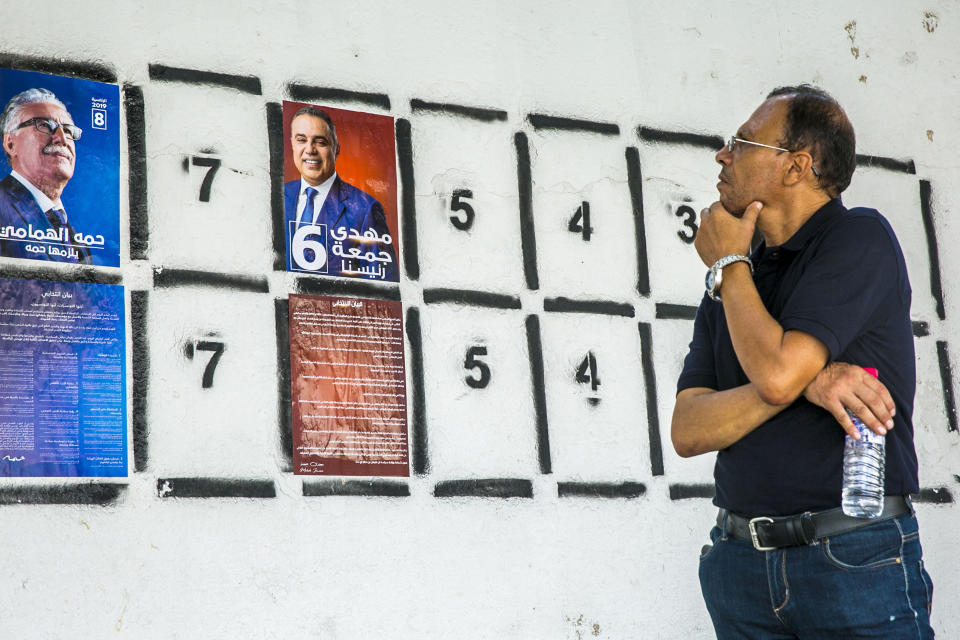Tunisia kicks off presidential campaign amid tensions
TUNIS, Tunisia (AP) — Tunisia's 26 presidential candidates launched their campaigns Monday in a political climate marked by uncertainty, money laundering allegations and worries about violent extremism.
The brief campaign for the Sept. 15 first-round vote will include Tunisia's first-ever televised presidential debate — and a prominent candidate may take part from a jail cell.
Candidates held rallies Monday in Tunis and in poorer provinces to present their platforms for the election to replace Tunisia's first democratically elected president, who died in office in July.
Media magnate Nabil Karoui is considered a leading contender, but he is in jail facing accusations of money laundering and tax evasion. The electoral authority approved his candidacy, but is awaiting a court decision over whether he can take part in the televised debates Sept. 8-10.
His arrest shook up the race, with his supporters saying he's being politically persecuted and electoral authorities struggling to maintain a transparent race and peaceful atmosphere. Tunisia's democracy, born of a 2011 uprising that led to revolts across the Arab world, remains fragile, and its post-revolution leaders have struggled against unemployment, corruption and Islamic extremism.
The campaign kicked off the same day that a national guard chief and three extremists suspected of plotting attacks were killed in a shootout near the Algerian border. The clash did not appear to be linked to the presidential race.
"It's an unhealthy climate," said former human rights activist Moncef Marzouki, who was Tunisia's provisional leader after the Arab Spring revolution and is running again for president. He lamented to The Associated Press that candidates are "fighting each other with methods unworthy of democracy."
Marzouki claimed that he feared no other candidate, but rather dirty money, his "most formidable rival."
Another candidate, Defense Minister Abdelkrim Zbidi, expressed regret at "denigration campaigns" between candidates, saying they make Tunisia look bad internationally. He expressed hope that "all parties take this into account, so that the presidential calendar can unfold in favorable conditions and constitutes a noble confrontation between programs and ideas."
The moderate Islamist party Ennahdha is hoping to bolster its political presence and put forward a little-known compromise candidate, Abdelafattah Mourou.
Two women are among the 26 candidates, hoping to become the first female president in a country long known for greater women's rights than most Arab countries.



